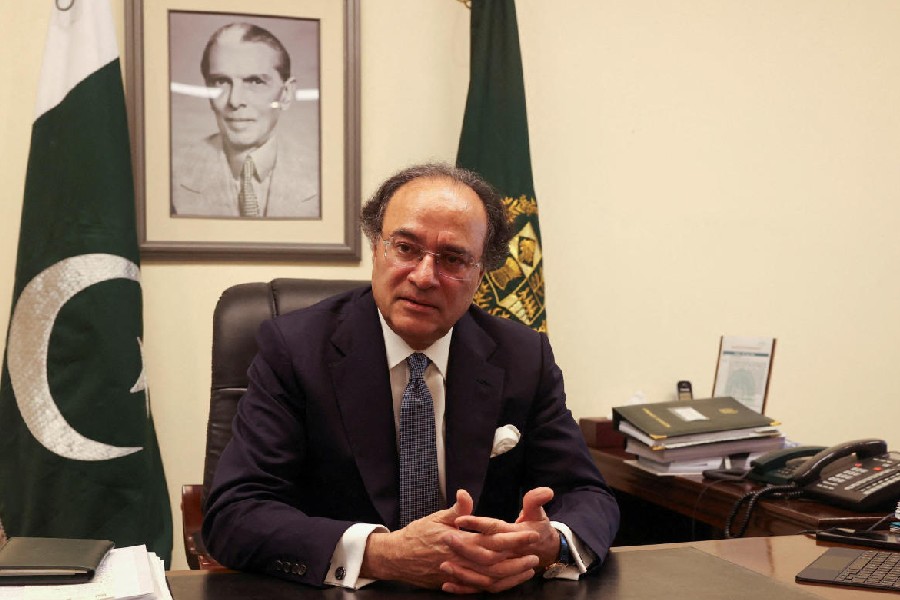Pakistan is targeting around $1 billion in a formal request for funding from the IMF facility that helps lows and middle income countries manage external shocks, its finance minister told Reuters.
"We have formally requested to be considered for this facility," Finance Minister Muhammad Aurangzeb said in an interview on the sidelines of the IMF/World Bank autumn meetings in Washington.
The International Monetary Fund had already agreed a $7 billion bailout for Pakistan, but has further funding available via its Resilience and Sustainability Trust (RST).
The RST, created in 2022, provides long-term concessional cash for climate-related spending, such as adaptation and transitioning to cleaner energy.
The South Asian nation is one of the most vulnerable countries to climate change according to the Global Climate Risk Index.
Floods in 2022, which scientists said was aggravated by global warming, affected at least 33 million people and killed more than 1,700. The country's economic struggles and high debt burden impinged its ability to respond to the disaster.
Pakistan is also in talks with the Asian Infrastructure Investment Bank for a credit enhancement for a planned Panda bond, with an initial issue of $200-250 million, Aurangzeb said.
A Panda bond issuance would be Pakistan's first foray into China's capital markets. Aurangzeb said they were talking to "a few other institutions" in addition to the AIIB for a credit enhancement.
Issuing in the world's "second largest and the second deepest" capital market, Aurangzeb said, was the key aim, rather than a particular issuance size.
"From our perspective it is diversification of the funding base," Aurangzeb. "Even if the inaugural issue is not significant in size, for us it is important that we print that and of course then we can keep it on tap."












